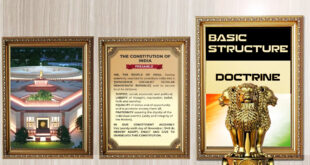August 24 will mark the first anniversary of the unanimous affirmation of the right to privacy by a nine-judge Bench of the Supreme Court. The court imposed upon the government a clear obligation to make a law safeguarding a person’s informational privacy, commonly referred to as data protection. The right to privacy judgment, which had six separate opinions that converge into a unanimous decision.
Two key points
First, it expressly stated the primacy of the individual as the beneficiary of fundamental rights. Second, it rejected the argument that the right to privacy dissolves in the face of amorphous collective notions of economic development.
In justifying the framework, the report runs into tremendous difficulties as it attempts to put together a regulatory agenda that reconciles the expansion of the digital economy and state control with the principles of the right to privacy judgment.
This also ignores the very structure of the Constitution in which the chapter guaranteeing enforceable Fundamental Rights stands on its own, preceding the one setting out unenforceable Directive Principles of State Policy.
The report attempts to open the right to privacy to allow the state the most convenient means by which to realise its regulatory agenda. Enabling the government’s convenience is not an objective laid out by the right to privacy judgment. Constitutional guarantees of rights do not automatically bend even to the pursuit of constitutionally legitimate aims.
Source : (https://www.thehindu.com/todays-paper/tp-opinion/a-fundamental-error/article24567724.ece)
 Chinmaya IAS Academy – Current Affairs Chinmaya IAS Academy – Current Affairs
Chinmaya IAS Academy – Current Affairs Chinmaya IAS Academy – Current Affairs



